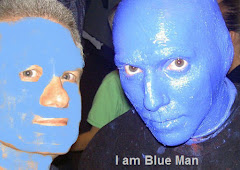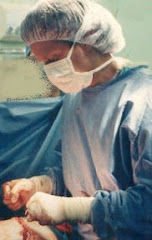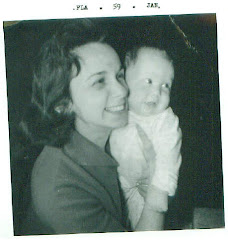Tuesday, October 14, 2014
Interview with Medical Expert
A: Your heart only good for so many beats, and that it...don't waste on exercise. Everything wear out eventually. Speeding up heart not make you live longer; it like saying you extend life of car by driving faster. Want to live longer? Take nap.
Q: Should I cut down on meat and eat more fruits and vegetables?
A: You must grasp logistical efficiency. What does cow eat? Hay and corn. And what are these? Vegetables. So steak is nothing more than efficient mechanism of delivering vegetables to your system. Need grain? Eat chicken. Beef also good source of field grass (green leafy vegetable). And pork chop can give you 100% of recommended daily allowance of vegetable product.
Q: Should I reduce my alcohol intake?
A: No, not at all. Wine made from fruit. Brandy is distilled wine, that mean they take water out of fruity bit so you get even more of goodness that way. Beer also made of grain. Bottom up!
Q: How can I calculate my body/fat ratio?
A: Well, if you have body and you have fat, your ratio one to one. If you have two bodies, your ratio two to one, etc.
Q: What are some of the advantages of participating in a regular exercise program?
A: Can't think of single one, sorry. My philosophy is: No pain...good!
Q: Aren't fried foods bad for you?
A: YOU NOT LISTENING! Food are fried these day in vegetable oil. In fact, they permeated by it. How could getting more vegetable be bad for you?!?
Q: Will sit-ups help prevent me from getting a little soft around the middle?
A: Definitely not! When you exercise muscle, it get bigger. You should only be doing sit-up if you want bigger stomach.
Q: Is chocolate bad for me?
A: Are you crazy?!? HEL-LLO-O!! Cocoa bean! Another vegetable! It best feel-good food around!
Q: Is swimming good for your figure?
A: If swimming good for your figure, explain whale to me..
Q: Is getting in shape important for my lifestyle?
A: Hey! 'Round' a shape!
AND,
For those of you who watch what you eat, here's the final word on nutrition and health. It's a relief to know the truth after all those conflicting nutritional studies.
1. The Japanese eat very little fat, and suffer fewer heart attacks than us.
2. The Mexicans eat a lot of fat, and suffer fewer heart attacks than us.
3. The Chinese drink very little red wine, and suffer fewer heart attacks than us.
4. The Italians drink a lot of red wine, and suffer fewer heart attacks than us.
5. The Germans drink a lot of beer and eat lots of sausages and fats, and suffer fewer heart attacks than us.
CONCLUSION:
Eat and drink what you like.
Speaking English is apparently what kills you.
Monday, August 4, 2014
Friday, August 1, 2014
Medicine
Just another day in paradise. Deja moo!
Thursday, July 31, 2014
Tunnels Found
Monday, July 7, 2014
Surgery Leadership Lessons
Dr. Kevin J. Tracey is the president and C.E.O. of the Feinstein Institute for Medical Research of the North Shore. He spent a lot of time in operating rooms over his medical career and learned some leadership lessons from that experience:
"I've seen the best of management and the absolute worst of management. The worst is when the team fears the leader, so when someone sees something going wrong, they're afraid to point it out. I've also seen the best. It's about clearly stating the purpose and asking people how they're doing and really listening if someone needs something different that day. If the operating team can accommodate the needs of that person without deviating from the plan, that person will be a better member of the team.
Too often I've experienced surgery teams that have little interest in the team members. It seems to be all about the surgeon, then about the patient and then everyone else…if there is time. And there usually is not. Teams are, by definition, made up of talented, qualified members and without member support and care, the team disintegrates into a dysfunctional anarchy. This is the worst of leadership where fear dominates and frustration abounds.
So has been my recent history and I am becoming more and more disgusted with the environment created by its leaders lacking leadership. It's really very simple: "accommodate the needs of [the team member] without [disrupting the plan of care for the patient]" What exactly is so difficult about that concept? Team members really don't need, want or ask for much. And why are so many surgeons being turned out of training not knowing this simple concept.
It's not about you, really.
Wednesday, July 2, 2014
Just Ring the Bell!
Sunday, June 22, 2014
How to Develop the Skills to Lead and Succeed
Some things to consider:
- Do not put other people down to make yourself look good.
- Raise your empathy level and always keep others' feelings in mind — increase your emotional intelligence.
- You may say that there are plenty of leaders who exhibit these personality blockers, and, yes, there are.
- Do people work because of you or in spite of you?
- If you have people who work for you, will they go the extra mile for you?
- Will they stay late?
- Will others take on an extra project just because you asked them to?
- Do not "one-up" people.
- Be collaborative.
- Listen — engagement does not mean having the best idea or best story to tell.
- Do not be the subject-matter expert on every topic.
- Do not try to one-up them — you will never win.
- Do not get off ended; it is their way of feeling important.
- Smile and say things like, "That's great," and keep the conversation going.
- Are you excited for people when they are successful?
- Do you let others take credit for work they produce even when they are not in the room
- Give people credit for their work.
- When someone else's idea is chosen over yours, congratulate him or her.
- Say nice things about other people and their work.
- Realize that when you sabotage other people's work, you will lose all respect from others.
- Take comfort in the fact that people always find out who really did the work.
- Try to include others on e-mails so that they are aware of your work.
- Do not speak badly about saboteurs. That will only hurt you—especially if they have any degree of influence.
- Try to get included in meetings where the work will be discussed.
- Speak up in meetings; do not fade into the background.
- When the saboteur tells about the work that "he" had done during a meeting, use statements like, "Yes, and what I'd like to add was that when I was working on the project, I found . . ."
- If appropriate, go to the saboteur and say, "I respect everything that you are doing. I would really like to be included in the reports so that others know what I am doing at the moment."
- Aren't you just a ray of sunshine.
- Did you take your medication today?
- Do I look like a people person?
- Not the brightest crayon in the box.
- Don't worry. I forgot your name, too!
- Nice perfume. Did you use the bottle?
- When it involves trying to get a laugh at someone else's expense, it is sarcasm — do not take part in it.
- If you have said something sarcastic, immediately apologize.
- When you have said something sarcastic to someone in front of other people, apologize publicly.
- Even if people tell you that your sarcasm is not hurtful, do not believe them. They are not sarcastic and do not want to hurt your feelings.
- Stop doing it and learn some real jokes if you are trying to be funny.
- Do not laugh when they make the joke; your laughter tells them it is all right to keep doing it.
- In private, say to them, "I know you may not realize it, but when you make those sarcastic jokes, they are hurtful. I know you would not want to hurt anyone's feelings, and so I wanted to let you know. If you are comfortable, say to them, "That's not really funny."
FDIC - Frightening Disseminated Intravascular Coagulation
DIC It is one of the most dangerous conditions that we encounter in the mother/baby realm during pregnancy and can threaten both mother and fetus. It is an extremely paradoxical event; A ballet between clotting and bleeding; Between life and death.
A "trigger" stimulates activation of the clotting cascade and clotting throughout the body. This activation results in widespread thrombosis (clots). All this clotting leads to depletion of the raw materials of the clot...platelets and coagulation factors. The end result of this process is bleeding into many areas and organs and, ultimately, multi organ failure including fetal demise. In most cases in the pregnant patient, this demands emergency c-section with long, exhaustive NICU stays for the babies who survive.
In a word, frightening.
 |
| DIC Cascade |
I've Nothing Together
I've been really
The exception to the "nice" rule is the clinician who comes believing that they have it all together and that nobody else does. The lack of teachability, compassion for the team that makes them look good and general sense of untouchability is a dangerous recipe. When those below are unwilling or unable to speak their minds, patient safety suffers tremendously. But more importantly, it unnecessarily creates an environment that nobody feels comfortable in, including the patient.
Medical education and administration has lost the ability to breed into and maintain a sense of humility in providers. The system is so broken, so lost. There is absolutely no recovery from a system that allows such behaviors to continue and, in many case, flourish. I, on the other hand, become more humbled by witnessing such aberrant behaviors and know for a fact, I don't have anything "together".
Saturday, June 7, 2014
Stop the Bullies
Wednesday, June 4, 2014
Time Flies

Time flies when you are having fun or busy putting people back together again. It's no excuse, but writing superflous wordage about next to nothing take back seat to patient care. Now I know how all the King's men felt. It's been a busy time with leaving internship and going to work.
It's been a great learning experience on many fronts. I don't think like a medicine people and being back in surgery is wonderful. Those who can't memorize, operate.
Quote of the past few months: "Can you imagine what a great surgeon I would be if I could find help who were as good as me?" - Anonymous, M.D.
I continue to strive. Per chance to dream.
Wednesday, February 26, 2014
Gossip
There's WAY too much gossip in the hospital. Much is not useful. But some can be. How do we know?
The following questions can help you decide if it's useful talk:
Are you telling someone who can do something about the problem by helping, or offering discipline or correction?
Are you talking to someone wise enough to help you process your feelings and courageous enough to make you do the right thing by confronting the other person, or confessing where you're at fault?
Is this news approved for sharing?
Are you breaking a confidence, and if so, is it strictly because the person is endangering someone's life, including their own?
Are you willing to divulge your source so it can be checked?
When you say this, does it break your heart?
Would you be comfortable if someone was saying this about you?
Asking...
Friday, February 7, 2014
Bad Behavior
She writes about a minority of staff and clinicians across all ranks of staff who are profoundly impactful and are outright bullies.
What is interested me most is her description of those subtle "micro aggressions", subtle putdowns, shaming interactions, sarcasm, passive-aggressive and frankly bad behavior.
There was something very relieving with reading her article. It read like a summary of my resume. Beyond her frank observations is the course reality to what may be wrong, at least in part, with the educational system of physicians and other healthcare clinicians today. Sometimes I'm so ashamed to be associated with this world.
http://aeon.co/magazine/being-human/why-rude-doctors-make-bad-doctors/
Friday, January 31, 2014
How many people does it take
This scene is absolutely chaotic. Or rather sort of an organized chaos. At one point I counted 16 people in the room with various roles and responsibilities. There is the scrub team which includes a surgeon, an assistant, and a surgical tech. There is a respiratory support team for each of the twins. There is an anesthesia team which includes a physician and a nurse anesthetist. Then there is the pediatric and neonatal resuscitation team from pediatrics and neonatal intensive care. Then there is a charge nurse for the operating room and patient care assistants to assist all of the team members.
It truly begins as a rather chaotic scene with all the members of the team scurrying around the room preparing for the delivery. But once the timeout is complete and the scalpel hits the skin it is truly poetry in motion. I don't believe there is any more skilled team in healthcare today then those that deal with high-risk births. It is truly a pleasure and a blessing to be a small part of the effort.
Thursday, January 30, 2014
Gross Anatomy is not Gross
I'd like to think that my course in "Gross Anatomy" was named for the man, the surgeon and the teacher who had the audacity to perform such an event absent gown, gloves, mask or other protective equipment. But many of my colleague argue that it's simply a reference to gross or macro anatomy on a large scale as opposed to micro (small) anatomy. Either way, I'm proud to be in the line somewhat of such men who dared to do cutting edge things, albeit without gloves.
We really have come a long way in surgery and the study of Anatomy in the past 140 years. And we don't let family watch surgery from a kneeling position in the corner of the room either. Although, perhaps we should.
Target --> Bladder Catherization
The procedure is done 1000's of times per day across the U.S. by nurses, medical assistants and other healthcare professionals. There is even a program for patients to "cath" themselves.
It's not rocket science but has some risks of complications including infection. If the procedures are followed correctly, complication are minimized and the procedure is effective and often necessary in the healthcare of the patient. Unless....
Unless of course you fail to understand the anatomy. In the female, the urethral opening is located anterior (toward the front) to the both the vagina opening and the anus.
Earlier this year, I heard a cry for assistance from a nurse in the OR. "I think there is poop coming out of her urethra. does she have a fistula?" I gloved up and made the attempt to assist her as she struggled with the procedure. But very quickly I recognized that she was attempting to place the urinary catheter into the rectum through the anus. A normal place for poop to be located.
It was everything I could to do to laugh out loud, but behind my mask, I had the biggest grin you can imagine.
She thanked me profusely for assisting and pointing out her problem with the very complicated female anatomy.
Sunday, January 26, 2014
Nutrition
It would be unheard of to deliberately go to the medicine cabinet and ingest antibiotics and/or hormones for no reason. Yet we ingest foods with both and somehow that seem normal to society when we eat meats. We continue to be an obese people eating too much of the "white" stuff including flour, milk, salts and sugars. More amazing, how much of this stuff we feed to sick patients disguised as "nutrition" during hospital stays and convalescence.
Consider raw fruits and vegetables. They really are our natural diet. They contain all of the essential nutrition we need for life. They are complete foods including fats and proteins. They are composed mostly of water, necessary for good hydration and water balance in the body. They are low in salt, fats without any preservatives, additives, cholesterol, uric acid, adrenaline, hormones, antibiotics or pathologic bacteria in their natural state.
But, the dietician retorts, what about protein? Most plants can biosynthesize all 20 standard amino acids (the building blocks of proteins). Every vegetable and fruit has protein, some more than others. In a diet that contains fruits, vegetables, nuts, seeds, legumes and grains...we will get the protein we need without adding meats to the mix. Each food varies from 4-8% protein with all 8 essential amino acids that we cannot produce ourselves but need. Tomatoes, zucchini, cukes are particularly good sources as are leafy greens, carrots, celery, cashews, chia seed, sunflower seeds, flax seed, mushrooms, sprouted beans, lentils and spirulina. Protein is the essence of "green drinks" in that way. I suggest there is plenty of protein.
It is possible to get protein, needed fats and carbohydrates, nutrients of all kinds and the nutrition the human body needs from this type of eating, so it would seem. What's important now is to test this inexpensive intervention and support individuals through the transition from the old to the new way of eating. It's not a diet, it's a lifestyle change. Including some movement exercise, this is a lifestyle with the potential to reverse the trend of disease in developed countries. It's certainly worth the effort. We have nothing to lose but ill health.












